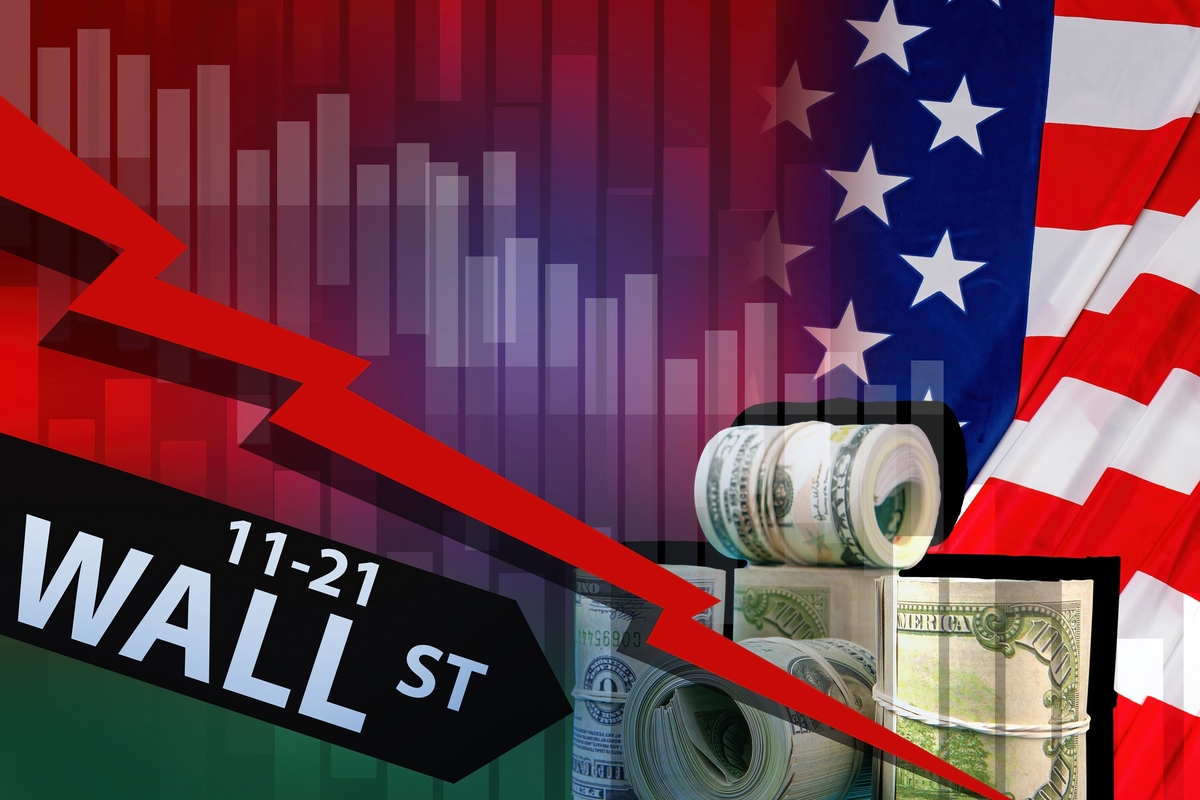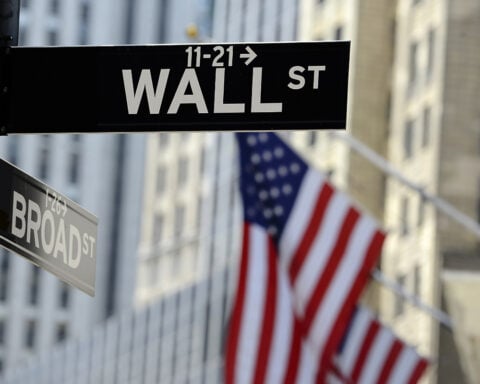As Wednesday witnesses a slump in stocks, Wall Street continues to lose pace after an impressive performance throughout the year.
In the afternoon trading session, the S&P 500 saw a drop of 1.2%, on track for a consecutive loss after attaining a peak in 16 months. The Dow Jones Industrial Average declined by 276 points, or 0.8%, at 35,357. The Nasdaq composite also experienced a 2.1% dip.
Mixed results were observed in the bond market post the U.S. government’s credit rating slash by Fitch Ratings. The frequent Congress stalemates over potential U.S. debt default contributed to Fitch’s decision, among other factors. This downgrade impacts the global finance core as U.S. Treasuries are considered highly safe investments.
The recent downgrade echoes the one by Standard & Poor’s in 2011, which, coupled with the European debt crisis, led to worldwide turbulence in stocks and bonds. However, the latest downgrade has induced less severe waves of panic.
Regarding the bond market, the 10-year U.S. Treasury yield rose to 4.08% from 4.04% as of late Tuesday, which plays a significant role in setting mortgage and other crucial loan rates. Meanwhile, the two-year U.S. Treasury yield dipped to 4.89% from 4.91%.
Despite the downgrade spotlighting U.S. government debt and challenges in funding Social Security, Medicare and other expenses, this isn’t surprising for investors. Brian Jacobsen, a chief economist at Annex Wealth Management, remarked that Fitch’s downgrade has little impact as investment funds permit US Treasury securities regardless of credit rating agency views.
The prime concerns for Wall Street continue to be the possibility of circumventing a long-anticipated recession and the developments in corporate earnings. Mixed reports regarding these concerns surfaced on Wednesday.
Such reports fuel criticisms that investors were overly eager to presume a guaranteed soft landing for the economy. They’ve argued that Wall Street has overly rallied this year. Some of Wednesday’s sell-offs could be investors capitalizing on profits from the S&P 500’s 19.5% year-to-date surge through July.
One report indicated that non-government hiring slowed down last month, but the figures were stronger than expected by economists.
A steady job market amidst high-interest rates could alleviate recession worries. However, the prospect of a robust report might convince the Federal Reserve of persisting inflationary pressure.
The Fed has rapidly increased its federal funds rate to curb inflation, which could risk inducing a recession and negatively affect investment prices. Although inflation has subsided since last summer, Wall Street is optimistic that the Fed might stop rate hikes and possibly start reducing them next year.
The ADP jobs report on Wednesday, which surpassed expectations, could foreshadow what the comprehensive U.S. government report on Friday might reveal. According to Fed Chair Jerome Powell, the upcoming data will significantly influence the central bank’s decisions in September.
High rates adversely impact technology and other high-growth stocks, dragging the market downwards. Major tech stocks, including Nvidia, Amazon, and Meta Platforms, dropped at least 2.7% and substantially affected the S&P 500.
Generac Holdings, a generator and power product seller, plunged 24.3% after reporting spring profits lower than anticipated, marking one of the S&P 500’s most significant drops. SolarEdge Technologies fell 18.3% after announcing profit and revenue growth below expectations, attributing the figures to higher interest rates pressurizing U.S. residential customers.
However, despite initial low expectations, most companies have exceeded profit expectations this reporting season. Experts predicted the most significant drop in S&P 500 earnings per share in years.
In contrast, CVS Health saw a 3.4% rise after the retail pharmacy chain reported a less severe drop in results than expected. Humana soared 5.6% after surpassing quarterly expectations. Both companies and a few others in the healthcare sector were among the relatively few stocks that witnessed an increase, with approximately a third of S&P 500 stocks rising.
In overseas markets, indices broadly slumped across Europe and Asia as caution crept in following the U.S. credit rating downgrade. Japan’s Nikkei 225 saw a steep 2.3% drop, South Korea’s Kospi fell by 1.9%, and Hong Kong’s Hang Seng declined by 2.5%. The losses were slightly milder in Europe, with Germany’s DAX down 1.4%.
The global financial landscape remains turbulent, with markets and investors keeping a watchful eye on economic indicators, corporate earnings, and the movements of central banks, especially the Federal Reserve. Wall Street’s continuing momentum this year has been disrupted, and the path ahead appears unclear. Still, one thing remains certain: careful monitoring and wise decision-making will be vital to navigating these uncertain times.







